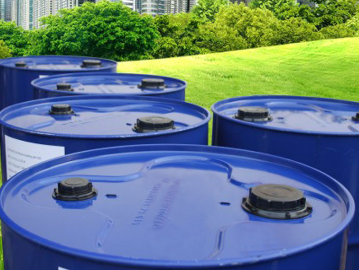
The Ultimate Guide to Choosing the Right Polyurethane Sealant
Polyurethane sealants are widely used in various industries and applications due to their excellent properties and versatility. They are commonly used to bond and seal different surfaces, providing excellent adhesion, flexibility, and durability. However, choosing the right polyurethane sealant for your specific needs can be a challenging task, as there are many different types and formulations available in the market. In this ultimate guide, we will walk you through the key factors to consider when choosing the right polyurethane sealant.
1. Understand your application:
Before selecting a polyurethane sealant, it is important to understand the specific requirements of your application. Consider factors such as the type of substrate, environmental conditions (such as temperature, humidity, and UV exposure), and the level of flexibility and durability required. This will help you determine the right type of polyurethane sealant for your needs.
2. Types of polyurethane sealants:
Polyurethane sealants can be categorized into two main types based on their curing mechanism: moisture-cure and two-component sealants. Moisture-cure sealants cure upon exposure to atmospheric moisture, while two-component sealants require mixing of two components to initiate the curing process. Both types have their advantages and disadvantages, so it is important to choose the one that best suits your application.
3. Consider the movement capability:
Polyurethane sealants are known for their excellent flexibility and movement capability. Depending on the specific application, you might need a sealant that can accommodate a greater degree of movement. Look for polyurethane sealants that offer high elasticity and elongation properties to ensure long-term performance.
4. Adhesion properties:
The adhesion of the sealant to the substrate is critical for its performance. Check the compatibility of the sealant with different substrates, such as metal, concrete, wood, or plastic. Look for polyurethane sealants that are specifically formulated for the substrate you are working with to ensure strong and lasting adhesion.
5. Chemical resistance:
Consider the compatibility of the polyurethane sealant with chemicals or substances that it might come into contact with. Depending on the application, you might need a sealant that is resistant to solvents, oils, or certain chemicals. Check the manufacturer's specifications to ensure the sealant is suitable for your specific chemical environment.
6. UV resistance:
If your application involves outdoor exposure or exposure to sunlight, it is crucial to choose a polyurethane sealant with good UV resistance. UV-resistant sealants are designed to withstand the damaging effects of sunlight, preventing degradation or discoloration over time.
7. Cure time:
Consider the desired curing time for your application. Some polyurethane sealants cure quickly, allowing for faster project completion, while others require longer curing periods for optimal performance. Take into account the temperature and humidity conditions during the curing process, as they can affect the cure time.
8. Consider the aesthetics:
In some applications, such as construction or automotive, the visual appeal of the sealant is also important. Many polyurethane sealants are available in a variety of colors to match the surrounding materials, ensuring a neat and seamless finish.
9. Safety and environmental factors:
Pay attention to the safety and environmental factors associated with the polyurethane sealant. Look for sealants that are low in VOCs (volatile organic compounds) to minimize air pollution and ensure a safer working environment. Check for any additional safety precautions or recommendations provided by the manufacturer.
10. Consult with experts:
If you are uncertain about which polyurethane sealant is best suited for your application, it is always recommended to consult with industry experts or manufacturers. They can provide valuable insights and recommend the most appropriate sealant based on your specific requirements.
In conclusion, choosing the right polyurethane sealant involves considering various factors such as application requirements, type of sealant, movement capability, adhesion properties, chemical resistance, UV resistance, cure time, aesthetics, safety, and environmental factors. By carefully evaluating these factors and consulting with experts, you can select the most suitable polyurethane sealant for your needs, ensuring optimal performance and durability.